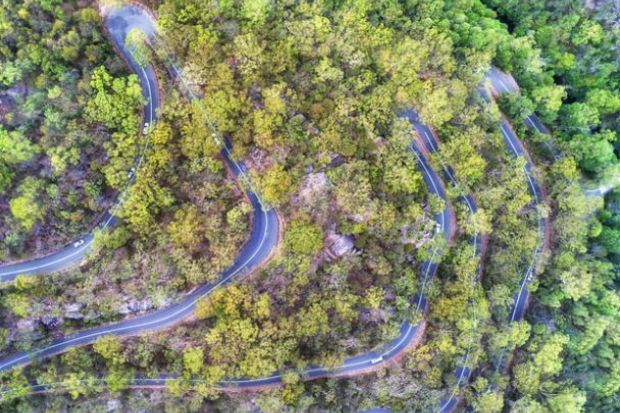The turnaround happened in a matter of hours. The last semester’s civil procedure class might have been dry (it covers litigation practice) but the reward for getting through it was to have been the communal breaking of bread and sampling of wine and cheese.
Yet this expression of gratitude for those students who were not apathetic consumers but genuine learners was not to be. Exposure sites for the Covid Delta variant were sprouting across Melbourne. Various university buildings in the city centre – including ours – had been identified as sources of transmission and were precipitously closed for “deep cleaning”. The last civil procedure class would have to be held online instead.
Students expressed disappointment. Memories of the horrendous 112-day lockdown of 2020 were still raw after all – and it had been a trying term all round. To allow physical distancing to be maintained, classes had alternated between online and in-person formats. Students could not resist some serious head-scratching at such apparent administrative indecision. “Why can’t [the university] make up its mind?” queried one student in the first week of the semester. No decent answer could be given because the university was itself experimenting with what it termed a “hybrid” learning environment, ever flexible and changeable at short notice.
But the Covid classroom has also unhinged the lecturer. Levels of slothful engagement and notable apathy among students have spiked. Attendance has proven to be sloppy. Pre-recorded lectures are treated like casual podcasts, to be dipped into with irregular interest when they are even consulted at all. Reading as a serious learning activity has all but disappeared, bringing to mind a remark made about a former UK prime minister: he sniffed papers rather than read them.
Then there is the troubling issue of assessment. Gone are the days when you might dismiss the less-than-imaginative excuses about the grandmother who has generously timed her death to coincide with submission due dates. Now, the excuses about sick relatives seem more credible, as do those about urgent caregiving and childcare.
Students also send panicked emails about being emotionally incapable of applying themselves – while doctors keep round-the-clock vigils over their headed notepaper, churning out certificates for anxiety, stress and a range of other mental health concerns.
Then there are the problems with internet connectivity, of course. And designated essential workers have a particularly hard time adjusting to volatile learning schedules.
Yet, untouched by the on-the-ground processes of learning and teaching, managerial bureaucrats in Australia stipulate when and whether classes will be delivered online or in person – and, if they are to be held in person, what the maximum number of attendees will be. The term “Covid-safe” is used with mind-numbing facility. Health declarations must be filled in to activate staff and student cards; not doing so prevents access to buildings and classrooms. There are wipes to use, disinfectant to apply. Masks must be worn – or not, depending on the directive of the week. And students’ movements must be monitored and their attendance tracked, not for reasons of academic merit but for contract-tracing.
Universities have also larded their “Covid safety” with a new set of monitors, adopting comically self-important titles. One stands out: the Covid champion. This commissar-like figure is meant to keep an eye on the compliance of teachers with the regulations on classroom attendance thresholds. Any student arriving after the numerical ceiling has been reached must be turned away – although, in reality, the policing of this policy has been sketchy.
I understand the pressures that university leaders are under to preserve reputations and revenues in the face of colossal losses. The loss of the China market and the closure of Australian borders to other international students, too, has been critical. But this is a crisis of leaders’ own making.
As overseas student revenue grew by 230 per cent between 2008 and 2019 (compared with a mere 64 percent for domestic student revenue) planners ignored the opportunity to bolster institutional reserves and instead permitted a ballooning in general expenses and non-academic salaries – not to mention their own. Now they complain, as Brian Schmidt of the Australia National University does, that the university sector has been “left to bleed to death”.
Instructors and students, meanwhile, have been left to largely fend for themselves amid the chaotic fallout. Melbourne is now emerging again from a two-week lockdown. The clusters of infections have been contained, although restrictions, such as the compulsory wearing of masks, remain. Across the city, university administrations will be tinkering, yet again, with the way a Covid class will be delivered. And staff and students are braced for yet more needless disruption to teaching and learning.
Binoy Kampmark is senior lecturer in the School of Global, Urban and Social Studies at RMIT University, Melbourne.
Register to continue
Why register?
- Registration is free and only takes a moment
- Once registered, you can read 3 articles a month
- Sign up for our newsletter
Subscribe
Or subscribe for unlimited access to:
- Unlimited access to news, views, insights & reviews
- Digital editions
- Digital access to THE’s university and college rankings analysis
Already registered or a current subscriber? Login







